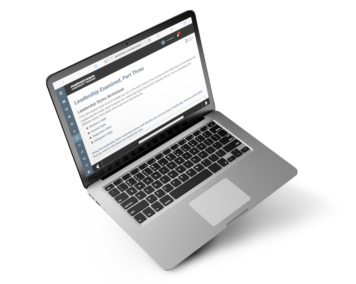27
Jan
5 reasons leadership training should be for all employees
Regardless of the myth that "leaders are born and not created," skills can be taught and improved through leadership training. Developi...
We make decisions and solve problems continually. We start making decisions before we even get out of bed (shall I get up now or not?). Sometimes, we will have made as many as 50 decisions by the time we leave for work. Despite all the natural decision making that goes on and the problem solving we do, some people are very uncomfortable with having to make decisions. You may know someone who has a hard time making decisions about what to eat, never mind the internal wrestling they go through in order to take on major decisions at work.
Likewise, we’ve probably all looked at a solution to something and said, “I could have thought of that.” The key to finding creative solutions is not just creativity, although that will certainly help. The answer rests in our ability to identify options, research them, and then put things together in a way that works. Having a process to work through can take the anxiety out of problem solving and make decisions easier. That’s what this two-day workshop is all about.


This two-day workshop will teach participants how to:
To begin, participants will explore what problem solving and decision-making means. They will also learn the eight essentials to defining a problem and apply these concepts to a simple case study.
Next, participants will learn about different types of decisions, the difference between facts and information, and common decision-making traps.
Next, participants will review their pre-assignment. This will help them evaluate how they currently solve problems.
During this session, participants will learn about a three-phase model that they can apply to most problems. They will also have an opportunity to apply the model to two case studies.
This session will look at seven basic problem-solving tools and two advanced tools (the degrees of support and fishbone analysis). Creative thinking methods, including brainstorming and brainwriting, will also be discussed.
Next, participants will work through a case study that will help them internalize and apply the concepts learned so far.
Solving business problems can be a bit different than everyday dilemmas, so this session will show participants how to use SWOT analysis in their organization.
Next, participants will learn about some things that are essential for team problem solving.
This session will look at the second phase of the problem-solving model: making a decision.
To wrap the course up, participants will learn how to complete the third phase of the problem- solving model. Topics will include planning and organizing a solution, completing a follow-up analysis, evaluating results, adapting with change, and celebrating success.